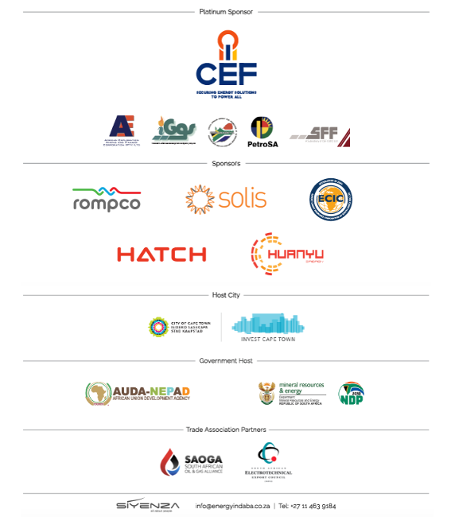- Speaking yesterday at Africa’s premier energy event, the Africa Energy Indaba, South Africa’s Mineral Resources and Energy Minister, Gwede Mantashe, said that coal, gas and nuclear energy is critical to delivering baseload power in South Africa.
Here are the main takeaways from his speech:
Renewable energy
Informed by the existing IRP 2019, the 6th administration has further issued Requests for Proposals (RFPs) for the procurement of:
- Five thousand megawatts (5000 MW) under Bid Window 7 of the Renewable Energy Independent Power Producer Procurement Programme (REIPPPP)
- Two thousand megawatts (2000 MW) under Bid Window 1 of Gas-to-Power
- Six hundred, and fifteen megawatts (615 MW) under Bid Window 2 of Battery Energy Storage.
“We further intend to issue RFPs for the procurement of a combined five thousand, six hundred and sixteen megawatts (5 616 MW) for Bid Window 8 of renewable energy and the 3rd Bid Window of battery storage by the end of the current financial year.
As we execute this programme, we are conscious of the challenges that hinder our progress towards ensuring reliable energy supply to society, which includes limited grid capacity, the intermittent nature of renewable energy and the decline in Energy Availability Factor (EAF) due to aging infrastructure.
Coal generation
It is increasingly becoming clearer that the role of coal in our context presents itself as not only a strategic mineral, but an important source of our baseload provision with the application of technology that will enable us to not only to comply with our international commitments but ensure that we continue to leverage the abundance of coal that can catapult development, when used responsibly.
Gas power supply and generation
We have noted concerns regarding the current and future gas supply in the South African market due to commercial disputes between Sasol and its customers. Gas is a finite source. Having noted this eventuality, we, together with the Department of Trade, Industry, and Competition (DTIC), have established a task team that includes private sector players to develop a joint strategy that will ensure a seamless transition and business continuity, thus ameliorating potential job losses. The DMRE has also completed all the modelling and drafting work for the country’s Gas Master Plan, which we intend to present to Cabinet this month.
To further mitigate the negative impacts of this eventuality, last year we entered into negotiations with the Mozambican Government and crafted a memorandum of understanding (MOU) covering two aspects:
- Partnering and trading on electrons from their Mpandankuwa project, and
- Partnering and trading on gas molecules from their newly discovered gas fields and Matola LNG hub.
Having gone through all the legal processes and certified by the Department of Justice, the MoU is ready to be singed and be put into action. We are in engagements with my counterpart in Mozambique to finalise a date for the signing of this MOU within this month.
As part of our interventions, through the CEF, we have signed a gas sales agreement with Empresa Nacional de Hidrocarbonetos (ENH, a central energy fund equivalent entity in Mozambique) with a potential to deliver up to 200 peta joules of natural gas. To breathe life into this agreement, PetroSA, another subsidiary of CEF, has applied for a gas trading licence with the National Energy Regulator of South Africa (NERSA). We are convinced that the granting of this licence will ensure continuous gas supply.
Notwithstanding these challenges and the persistent threats to the development of the South African Upstream Petroleum Industry by foreign-funded lobby groups, South Africa has made significant new finds of natural gas. The discovery of gas by TotalEnergies in the Outeniqua Basin, and the discovery of maiden gas reserves by Kinetiko Energy in Amersfoort, Mpumalanga, are strategically placed to strengthen South Africa’s energy security and propel the quest for industrialisation that will bring about growth and development.
Nuclear power generation
Africa is blessed with a plethora of natural resources, of which significant quantities are needed for the just energy transition. Uranium is one such a mineral that can be used in various nuclear applications including the generation of clean baseload energy, and nuclear research reactors for medical purposes.
At a global stage, small modular reactors are increasingly considered a game changer due to their potential to guarantee reliable, clean, and affordable energy. It is in this context that, we have initiated the procurement process for the procurement of two thousand, five hundred megawatts (2 500 MW) of nuclear capacity, following NERSA’s concurrence to the ministerial determination for the procurement of this capacity, and the subsequent gazetting of the determination.
Mantashe concluded by saying “The reality of the matter is that climate change and energy security are two sides of the same coin. As we transition from high-to-low carbon emissions, we must ensure that we address energy poverty, ensure energy security, and leave no one behind.”
Link to Mantashe’s full speech HERE
Author: Bryan Groenendaal
Website: africaenergyindaba.com / Enquiries: info@energyindaba.co.za


















